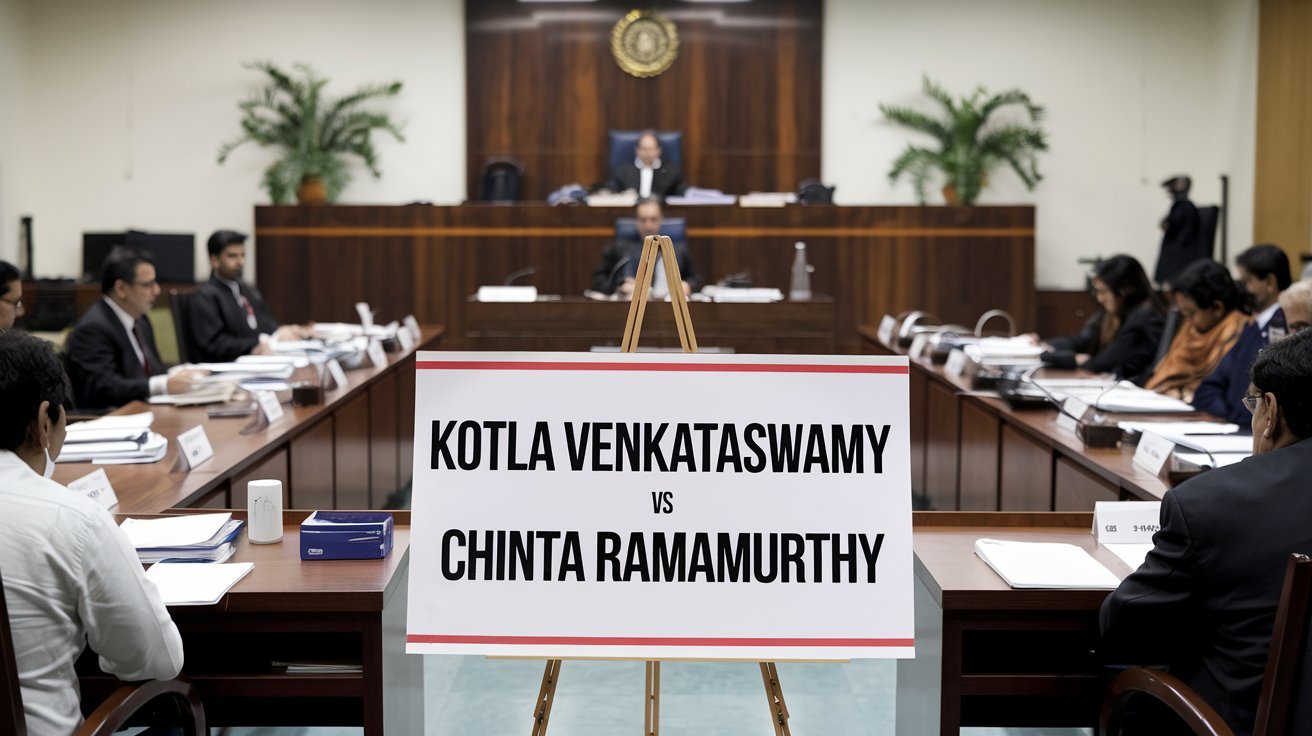Kotla Venkataswamy vs Chinta Ramamurthy (Case Summary)

This landmark case of company law is a set case where the main issue revolves around the doctrine of constructive notice of public documents like Articles of Association of a company to the third persons. This case sets up the perfect example of contracts being invalid if ultra vires to the incorporation documents of a company.
Table of Contents
ToggleFacts of Kotla Venkataswamy vs Chinta Ramamurthy
- Kotla venkataswamy is the mortgagee holding a mortgage bond executed by South Indian Agricultural and Industrial Improvement Co. Ltd (Defendant).
- The mortgage bond was signed by defendant 1 & 2 who were the working director and secretary of the company.
- The company went into liquidation and Kotla Venkataswamy (Plaintiff) sued to claim his right towards the mortgage.
- The company, challenging the validity of the mortgage, argued that the Articles of the company mandated the signature of three persons namely, working director, secretary and managing director of the company to execute a mortgage.
Issues framed
- Whether the mortgage bond was validly executed so as to make the company liable?
Judgment of Kotla Venkataswamy vs Chinta Ramamurthy
Subordinate court judgment: The lower court dismissed the claim of the plaintiff and held that the mortgage was not valid as the Articles of the company mandated the signatures of the Working director, managing director and secretary. The signature of the Managing director was missing on the mortgage deed.
The plaintiff then appealed to the Madaras High court
Judgment of the Present case
The court applied the doctrine of constructive notice as the Articles of the company were public documents. The court also reiterated the Article 15 of the AOA of the company i.e.
“Article 15: – All deeds, hundies, cheques, certificates and other instruments hall be signed by the Managing director, the Secretary and the working Director on behalf of the Company, and shall be considered valid.”
The court held that even though the loan was Articles are public documents and hence it shall be considered that the plaintiff (Appellant) had the notice of the fact that the signature of the Working Director and secretary are not enough to create a mortgage.
The court held that it is impossible to validate the Mortgage Deed when the Articles explicitly states that to make a deed, all three (Managing Director, working Director, Secretary) signatories are mandatory. The court applied the doctrine of constructive notice presuming that the plaintiff had sufficient notice about the requirement given in the Articles. The deed was ultra vires to the Articles and hence was void ab initio. The appeal by the plaintiff was dismissed the appeal of the plaintiff.





